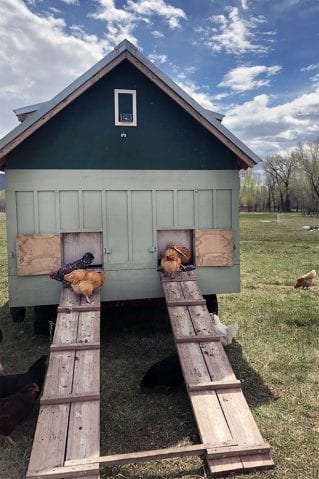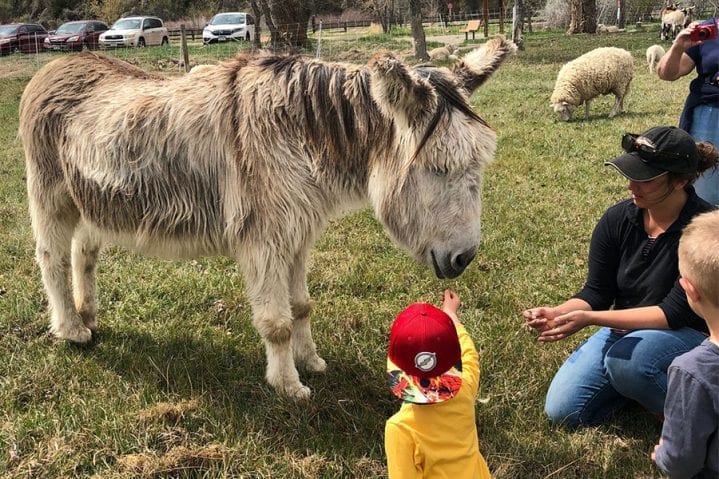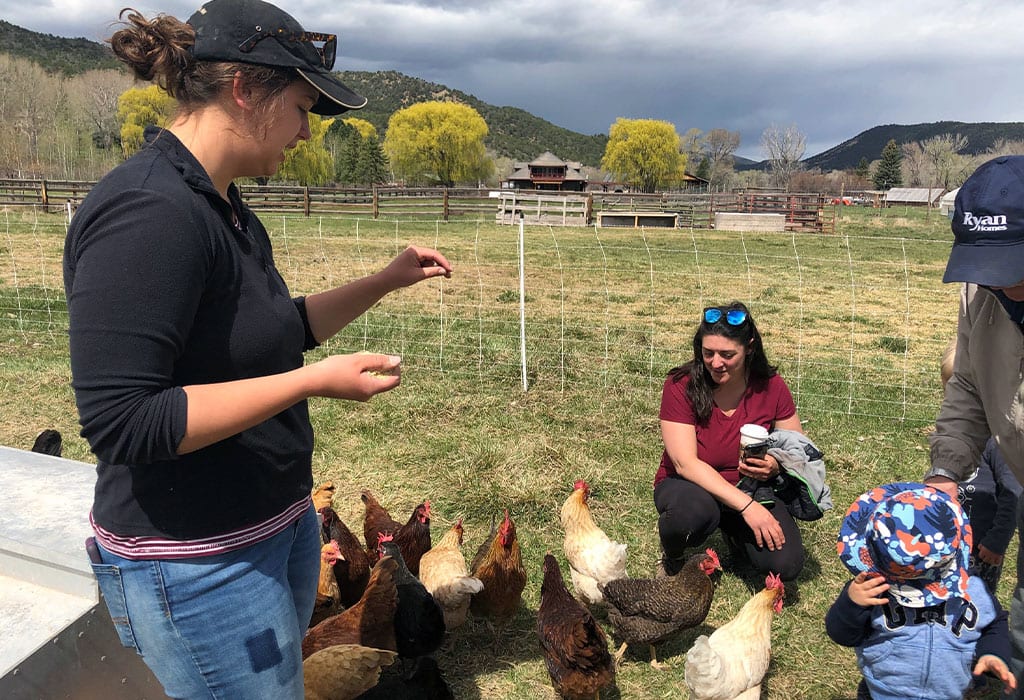This spring I visited the Aspen Center for Environmental Studies (ACES) at Rock Bottom Ranch in Basalt, Colo., to see what one ranch and farm do to coexist with wildlife. With a 113-acre wildlife preserve connected to the space, Rock Bottom has implemented many wildlife conflict best practices and is now certified “wildlife friendly.” In walking the ranch with a local expert, I saw how farming and wildlife can thrive together.

Auto-shutting doors on chicken coops keep chickens safe from carnivores.
Rock Bottom’s first line of defense is electrical fencing. Livestock stays away from the fencing, but more importantly, it very effectively keeps carnivores out. Basalt is home to black bears, eagles, cougars, coyotes, weasels, foxes, and a plethora of other carnivores. This fencing has successfully kept bears away from bee boxes and deterred them from accessing the farm’s chickens, sheep, and pigs. In regard to chickens, Rock Bottom employs mobile chicken coops with auto-shutting doors. The coops are rolled to rotating plots on the acreage, which creates healthy soil while simultaneously keeping carnivores guessing as to the chickens’ location. The shutting doors secure the chickens in the evening. Meanwhile, two roosters alert the flock to any birds of prey soaring above, so the chickens all have opportunity to take cover.
One of Rock Bottom’s most endearing wildlife coexistence tools, guard donkey “Storm,” is bonded to the ranch’s sheep herd. Legend has it Storm bears the scars of a cougar encounter met while defending his flock. Last year, the donkey was able to alert ranchers to a black bear that had grabbed a sheep entangled in fencing, saving the life of the sheep and preventing a conflict that could have led to calls to kill the black bear. Other effective guard animals include llamas and different livestock dog breeds.

Guard donkey “Storm” defends the ranch’s flock.
Engaging with nonlethal wildlife management and the sustainable farming community in the Basalt region is especially critical. Aspen, Basalt, and Carbondale call the Piceance Basin their backyard. In this region the state wildlife agency, Colorado Parks and Wildlife, has contracted with the federal wildlife-killing agency, Wildlife Services, to kill cougars and black bears. It is unfortunate that the state and federal agencies aren’t taking inspiration from the excellent coexistence work happening at Rock Bottom Ranch and identifying other ways to coexist rather than kill native carnivores.
